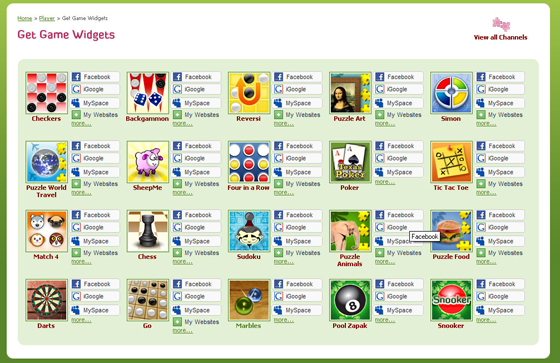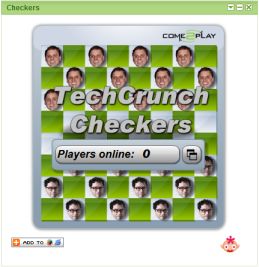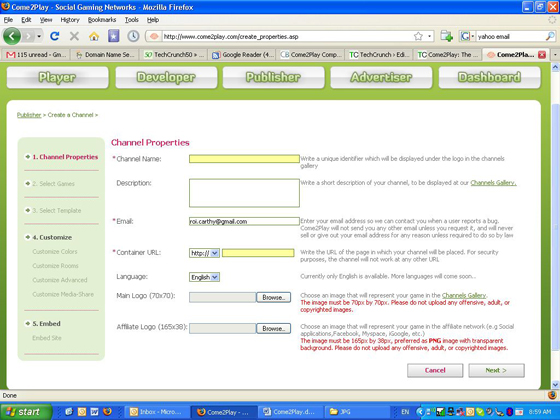 A few months ago in a Globes interview (Hebrew), I commented that Israeli startups may have missed the window of opportunity in casual gaming. Shortly thereafter the CEO of Kampyle told me that a sister company in Yossi Vardi’s portfolio called Come2Play is doing some interesting things in this space and I have to check it out. He was right!
A few months ago in a Globes interview (Hebrew), I commented that Israeli startups may have missed the window of opportunity in casual gaming. Shortly thereafter the CEO of Kampyle told me that a sister company in Yossi Vardi’s portfolio called Come2Play is doing some interesting things in this space and I have to check it out. He was right!
Come2Play is the Ning of social gaming networks. Meaning that, unlike the new generation of gaming networks (SGN, Zynga, etc.) whose games are the formation of branded networks, Come2Play is a white label solution for anyone who wants to create their own gaming network. The true “Ning-ness” of Come2Play’s offering is its platform’s granular customization.
Come2Play’s fully functioning casual gaming channels can be integrated by any sized publisher within minutes. The games are all Flash-based and are social by definition, i.e. two players and up. There are 22 games “out of the box” (Chess, Backgammon, Simon, etc.), but this number will grow as Come2Play develops more games itself, as well as through 3rd party game developers who will be given 100% of the ad revenues their games generate.
From the functionality perspective, a typical Come2Play channel includes a game gallery, play rooms supporting 80 players per room, private/public chat, gamer profiles, leaderboards, and tokens that are redeemable as virtual gifts.
Literally everything can be customized. This includes high-level aspects such as look and feel, language and even integration (iFrame or XML)—this is true for both the entire channel and even individual games. More granular customization can affect the tokens, avatars sound effects, and the game boards themselves. Publishers can also determine whether the game play can take place with users across Come2Play’s entire network, or specifically within the publisher’s own channel.
All games are individually portable as widgets and include link-backs to the channel of origin. As an example of the portability and customization, checkout this TechCrunch-branded version of Checkers (see screenshot on right) available as a Facebook app, a MySpace app and an iGoogle Gadget.
The core of Come2Play’s business model, unsurprisingly, is advertising. Based on nearly 39 million games played, Come2Play is averaging 8 minutes per user, per game. Add the ability to integrate ads—pre/post-game, in the game window and within the game—and you get an offering that could have advertisers and publishers lining up. Come2Play splits “game play” ad rotation 50/50 with the publisher, where each party is in charge of its own monetization.
It sure looks like Israel has a serious player in casual gaming.


